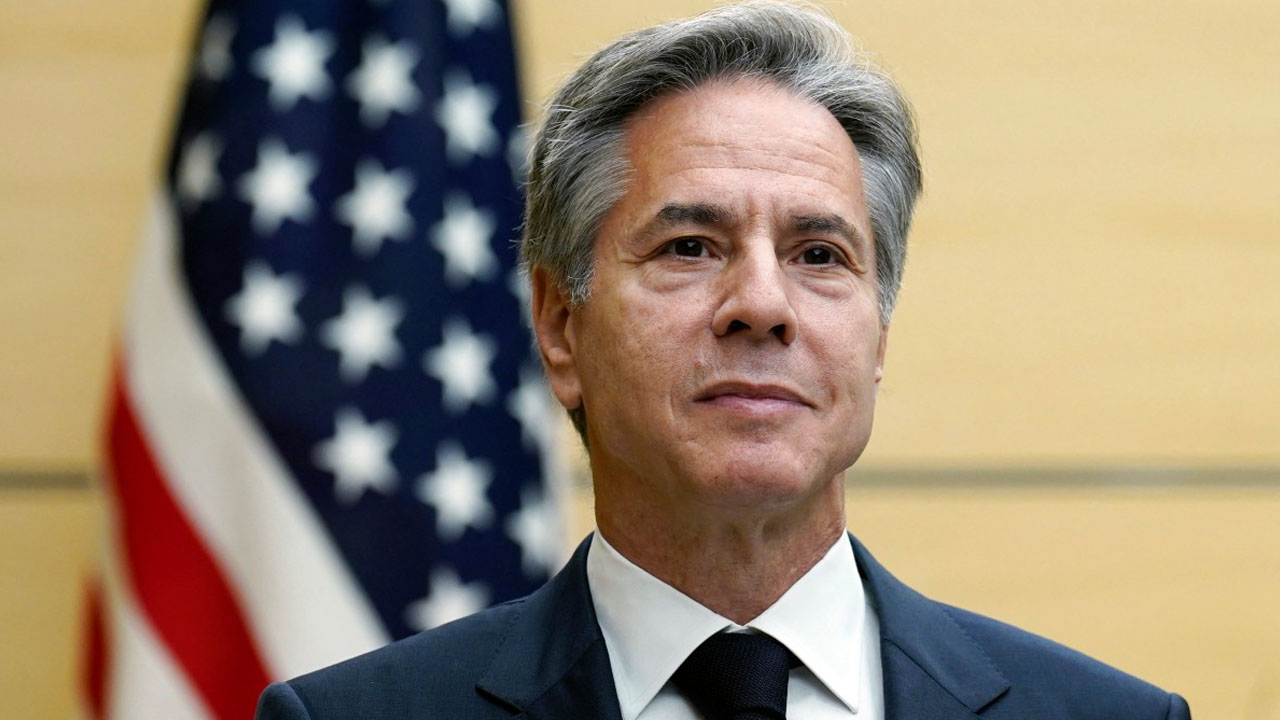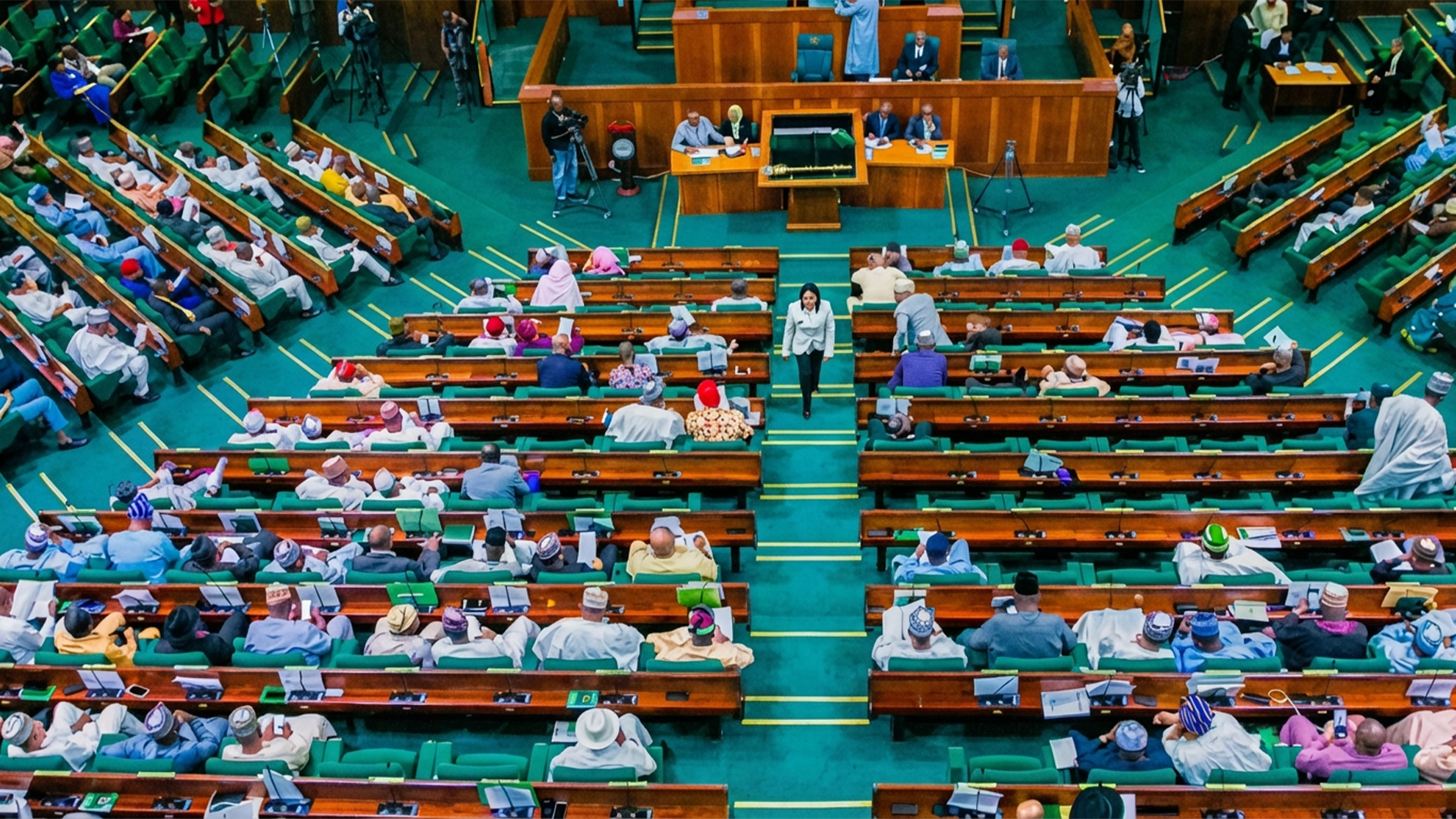
Top US diplomat Antony Blinken has urged Hamas to accept a Gaza truce plan despite an Israeli warning that the army will keep fighting the Palestinian militant group after any ceasefire.
Mediators have proposed a truce deal that would halt fighting for 40 days and exchange dozens of hostages for many more Palestinian prisoners.
Hamas has said it will respond “within a very short period” to the proposal.
“Hamas needs to say yes and needs to get this done,” Blinken said Wednesday while in Israel on his seventh Middle East crisis tour since the war broke out in October.
He later added: “If Hamas actually purports to care about the Palestinian people and wants to see an immediate alleviation of their suffering, it should take this deal.”
Blinken spoke after visiting the Nir Oz kibbutz, which Hamas attacked on October 7, as well as Israel’s Kerem Shalom border crossing with Gaza and Ashdod port, which Israel says will be used for aid shipments.
Senior Hamas official Osama Hamdan told AFP late Wednesday that the movement’s position on the truce proposal was “negative” for the time being, but that discussions were still underway.
The group’s aim remains an “end to this war”, senior Hamas official Suhail al-Hindi told AFP — a goal at odds with the stated position of Israel’s hawkish Prime Minister Benjamin Netanyahu.
Netanyahu has vowed to send Israeli ground forces into Gaza’s far-southern city of Rafah, despite major concerns over the fate of some 1.5 million civilians sheltering there.
“We will enter Rafah and we will eliminate the Hamas battalions there with or without a deal,” Netanyahu said this week.
UN chief Antonio Guterres warned that an Israeli assault on Rafah would “be an unbearable escalation, killing thousands more civilians and forcing hundreds of thousands to flee”.
Netanyahu made his threat at a time of tensions between the traditional allies as the Gaza war has sparked global anger and weeks of pro-Palestinian demonstrations on US university campuses.
US Defense Secretary Lloyd Austin told Israeli Defense Minister Yoav Gallant that any Rafah operation must “include a credible plan to evacuate Palestinian civilians and maintain the flow of humanitarian aid”, the Pentagon said Wednesday.
– ‘Sustainable calm’ –
Talks on a potential truce and hostage release deal to pause the bloodiest ever Gaza war have been held in Cairo, involving US, Egyptian and Qatari mediators.
Hamas official Hindi, speaking by phone from an undisclosed location, said there is “great interest from Hamas and all Palestinian resistance factions to end this insane war on the Palestinian people, which has consumed everything”.
“But it will not be at any cost,” he added, stressing that the group “cannot under any circumstances raise the white flag or surrender to the conditions of the Israeli enemy”.
Egypt’s Foreign Minister Sameh Shoukry called on all sides to “show the necessary flexibility” to achieve a deal “that stops the bloodshed of Palestinians”, during a visit to Cairo by his French counterpart Stephane Sejourne.
Analysts doubted that Hamas would sign up to another temporary ceasefire, knowing that Israeli troops could resume their onslaught as soon as it is over.
“I’m pessimistic about the option of Hamas agreeing to a deal that doesn’t have a permanent ceasefire baked into it,” said Mairav Zonszein, senior analyst at the International Crisis Group.
A source with knowledge of the negotiations said Israel’s proposal contained “real concessions” including a period of “sustainable calm” following an initial pause in fighting.
– ‘More rubble than Ukraine’ –
The war started with Hamas’s October 7 attack on southern Israel that resulted in the deaths of 1,170 people, mostly civilians, according to an AFP tally based on Israeli official figures.
The militants also took about 250 hostages. Israel estimates that 129 captives remain in Gaza, but the military says 34 of them are dead.
Israel’s massive retaliatory offensive has killed at least 34,568 people in Gaza, mostly women and children, according to the health ministry in the Hamas-run territory.
Widespread bombing has left Gaza filled with “more rubble than Ukraine”, a UN agency said, warning that clearance efforts will be hampered by unexploded ordnance and toxic asbestos.
Israel also imposed a siege on Gaza’s 2.4 million people that has sharply restricted access to food, drinking water, medicines, fuel and power.
UN agencies have warned that without urgent intervention, famine looms in Gaza, and the United States has also strongly urged Israel to speed up aid deliveries.
“The progress is real, but given the immense need in Gaza, it needs to be accelerated. It needs to be sustained,” said Blinken as he visited the port of Ashdod, reopened to aid after US appeals.
Blinken saw off a Jordanian aid convoy that was heading to the newly reopened Erez crossing between Israel and Gaza, and later the US-based charity World Central Kitchen said it had resumed work in Gaza.
The Israeli army confirmed that “for the first time since the beginning of the war, the Erez crossing has been opened for the entry of humanitarian aid”.
Israel has faced mounting international pressure over its conduct of the war, with Colombia on Wednesday announcing that it was cutting diplomatic ties — a move Israel said was a “reward” for Hamas.






